Why you can trust Tom's Hardware
Comparison Products
Today, we throw Silicon Power’s Bolt B75 Pro up against a few other external SSDs and an external HDD that we have recently tested. As the slowest competitor, we include the LaCie Mobile Drive 2TB HDD. Next, we include the Kingston HyperX Savage EXO and SanDisk Extreme, both USB C external SSDs that operate at SATA speeds. Additionally, we included two faster options, the Lexar SL100 Pro, a USB 10Gbps product, and Samsung’s Thunderbolt 3 powered X5 external SSD.
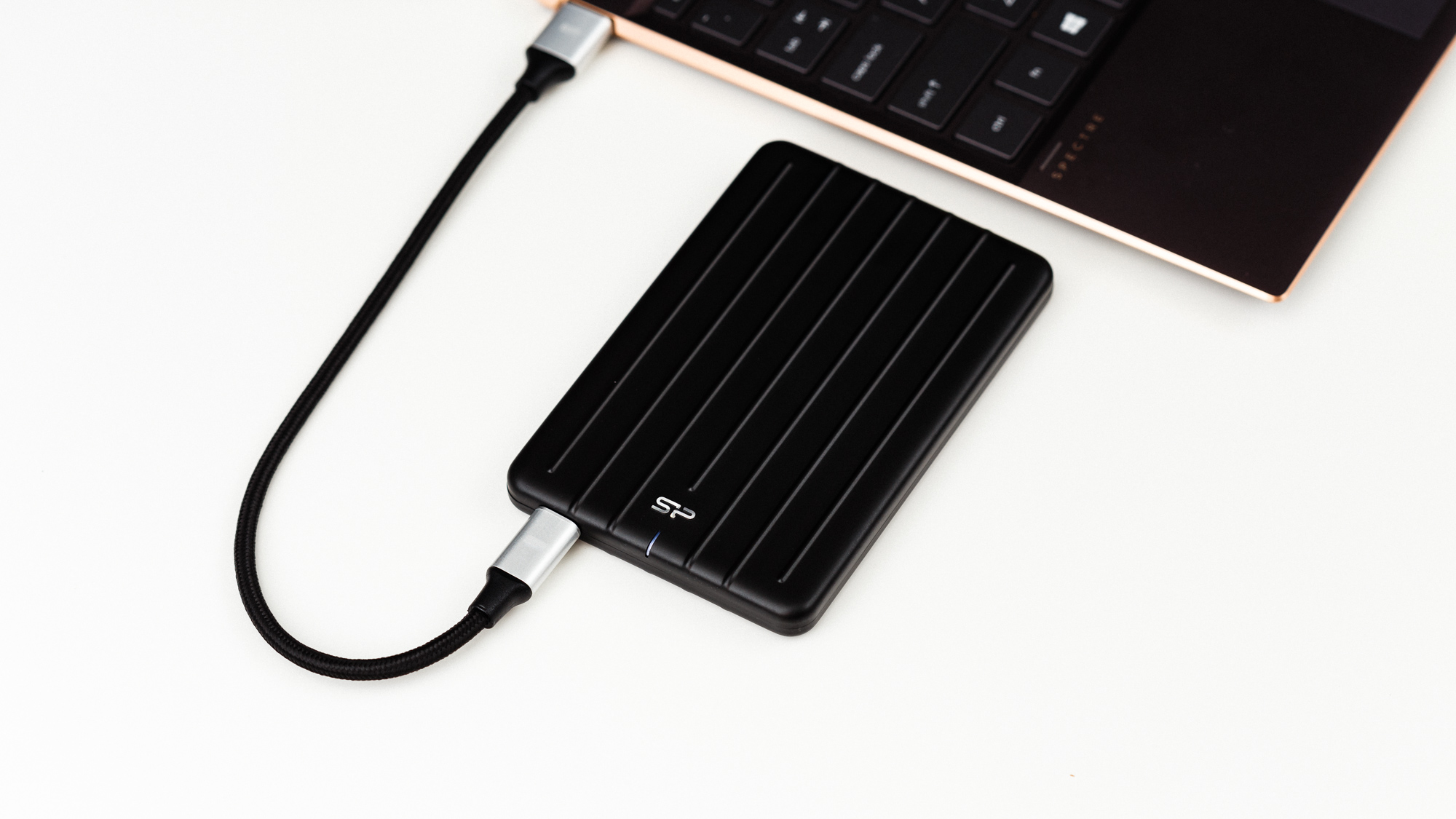
Transfer Rates – DiskBench
DiskBench is a storage benchmarking tool that allows us to test the transfer or copy performance of a storage device with real data. We test external drives with three file transfers that consist of 25GB of photos (10GB of iPhone jpgs and 15GB of RAW photos from a Canon 6D), 50GB of movies, and 25GB of documents. First, we transfer each folder from a 1TB NVMe SSD to the external device; then we follow up by reading a 3.7GB 7-zip file and a 15GB movie back from the device.
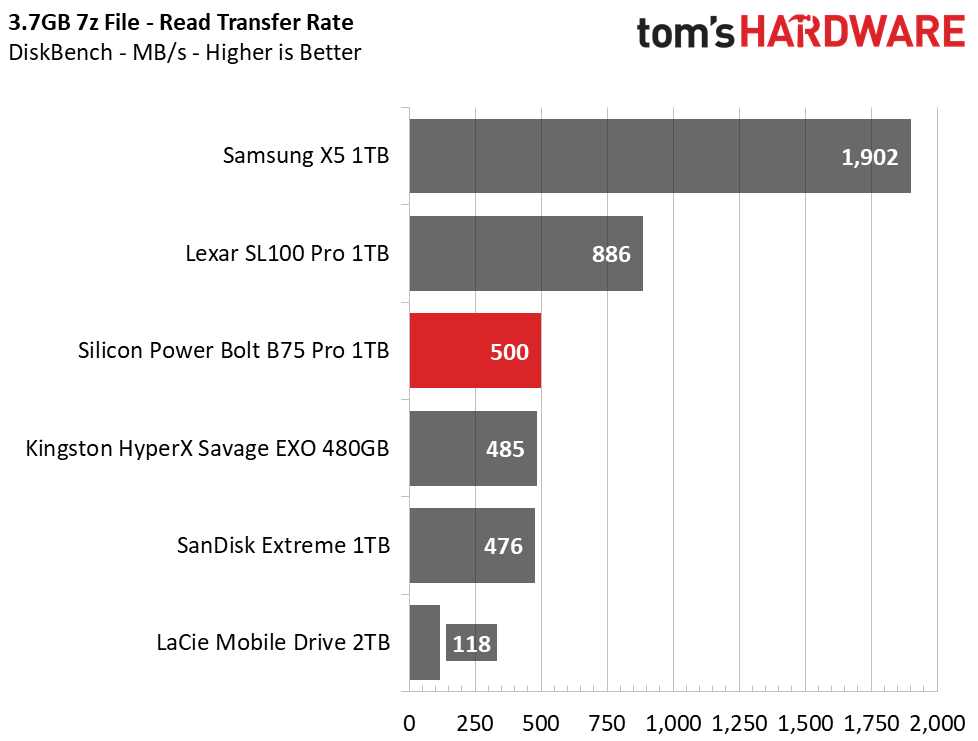
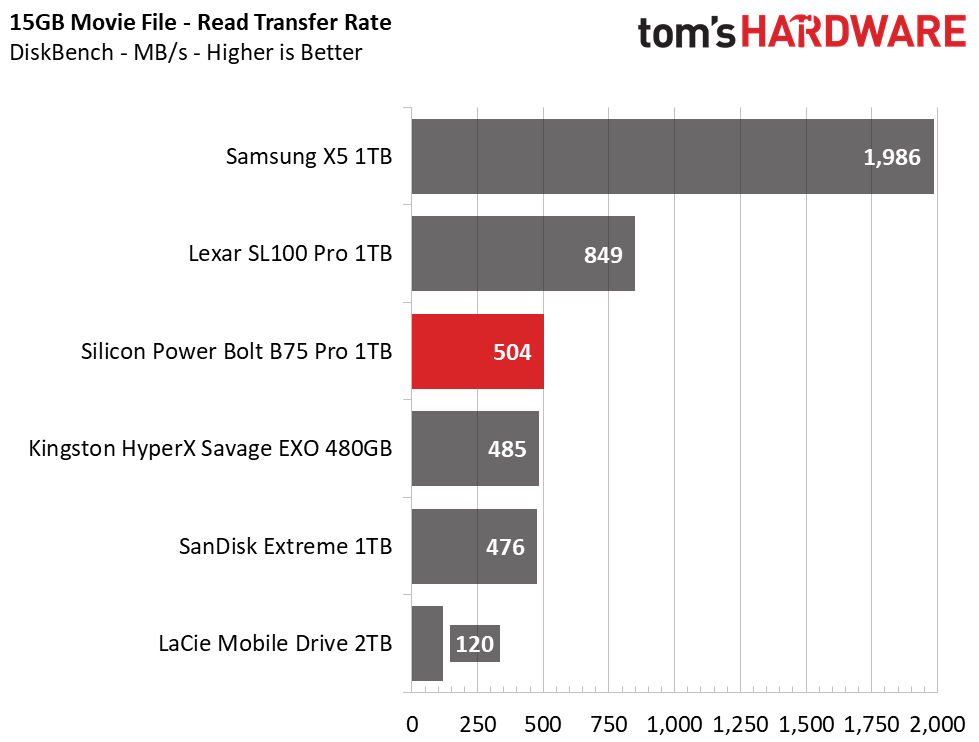
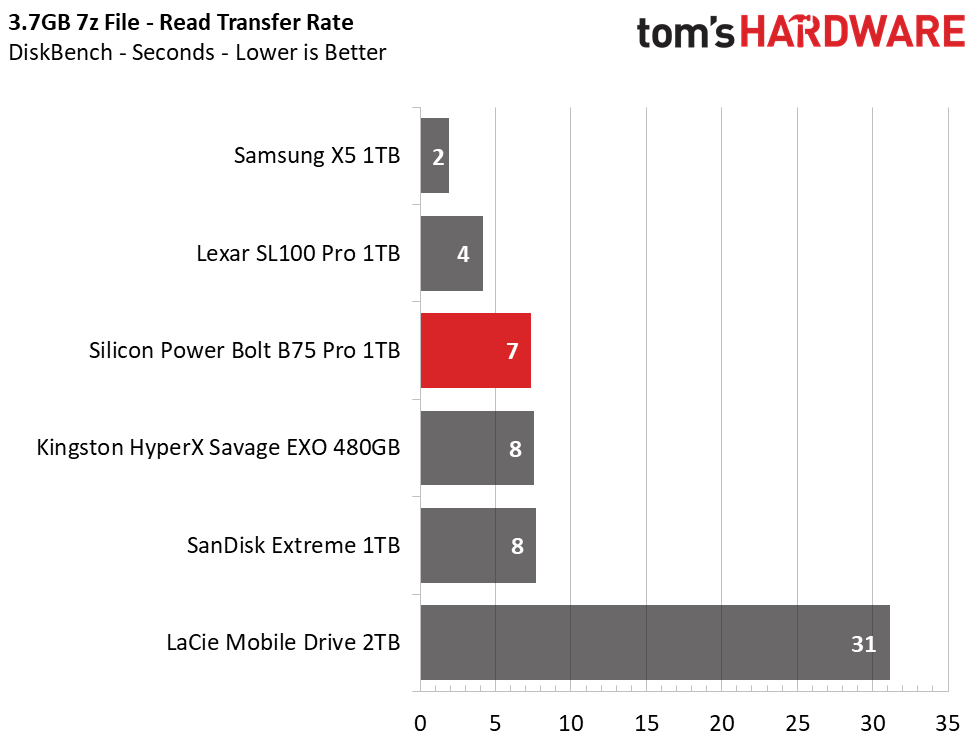
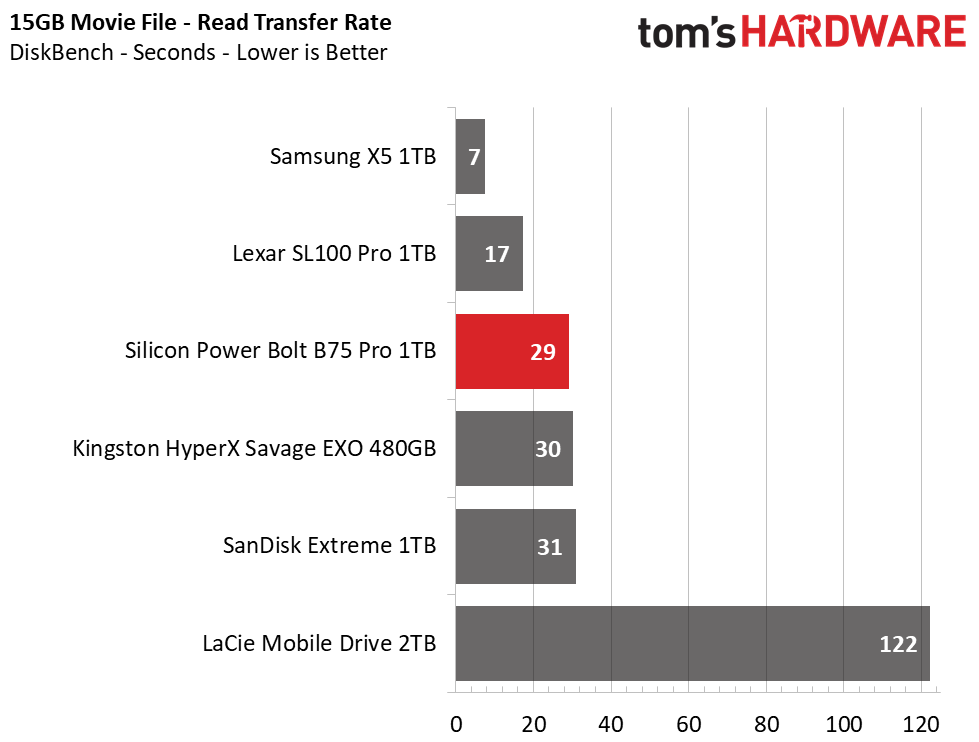
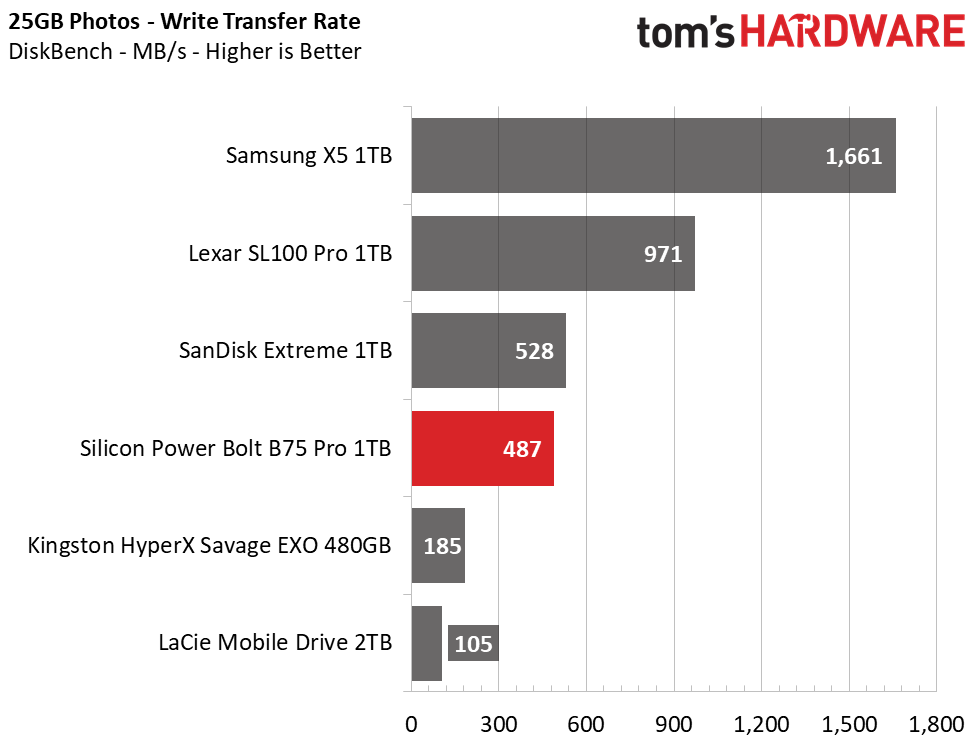
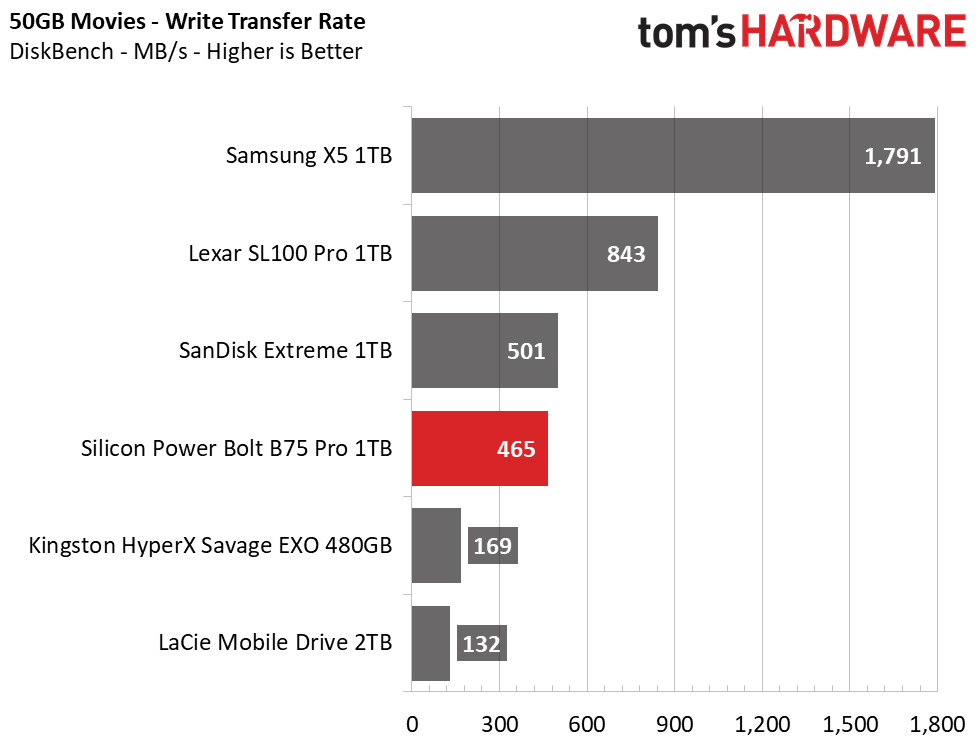
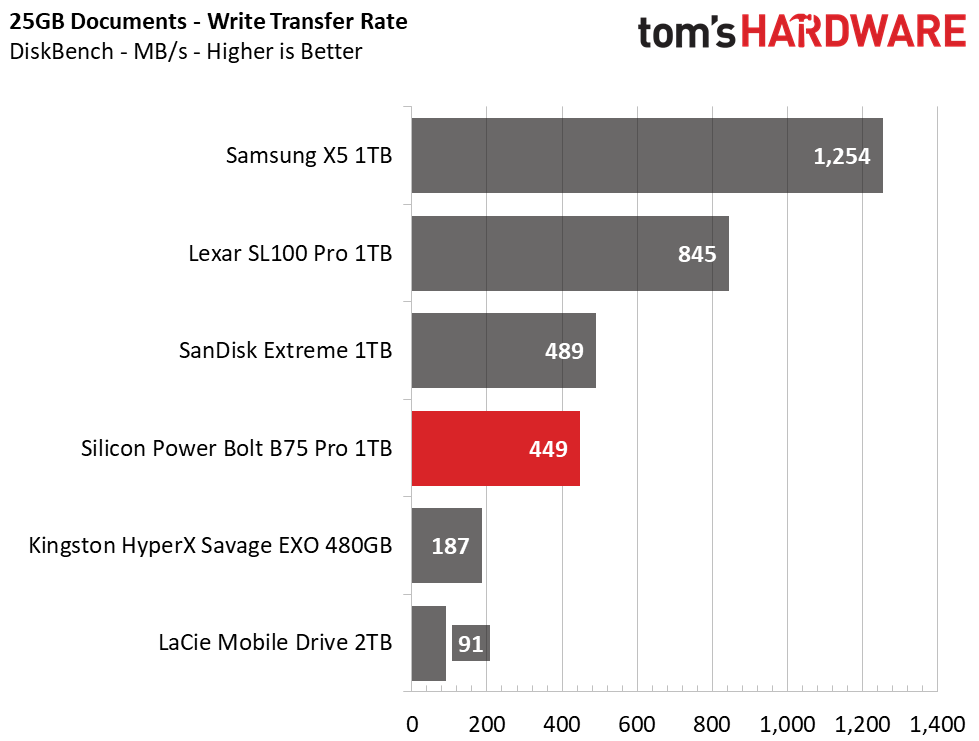
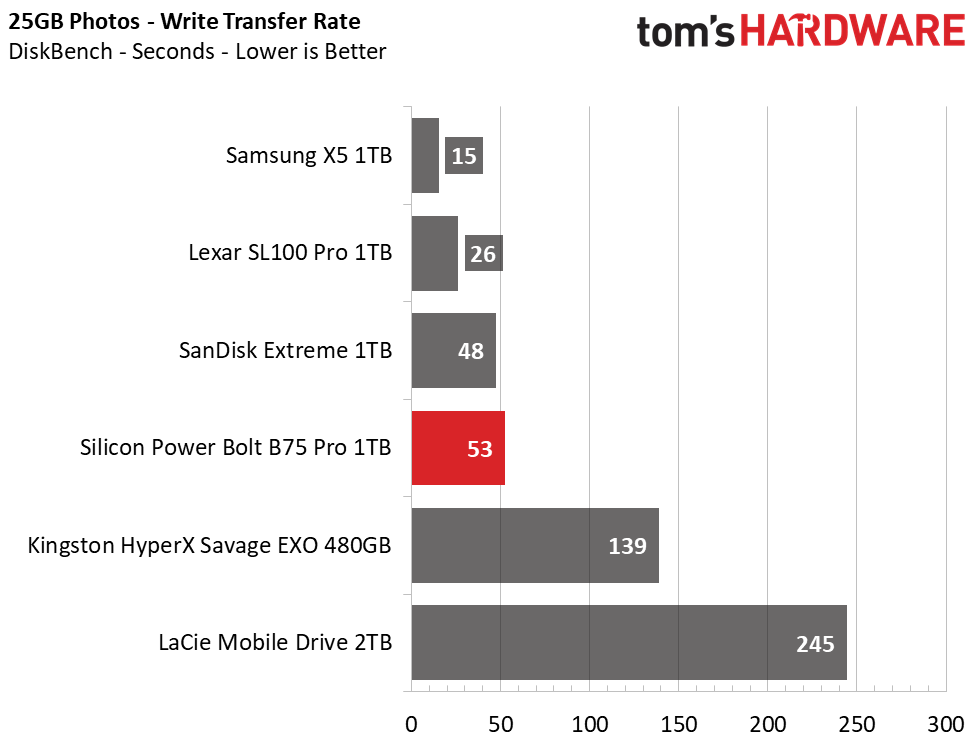
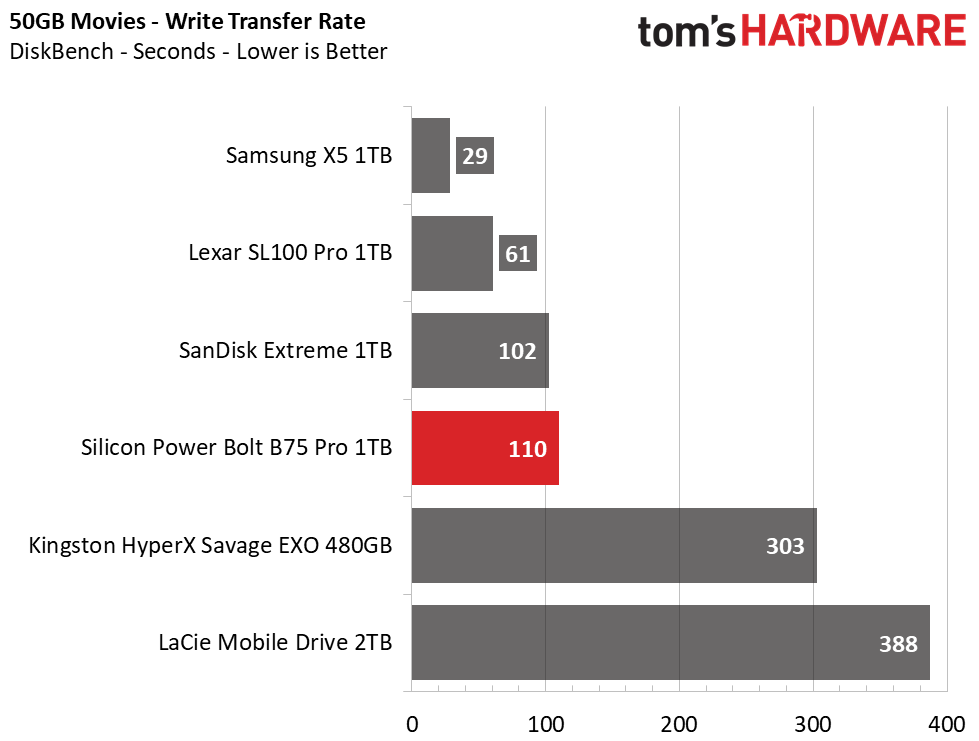
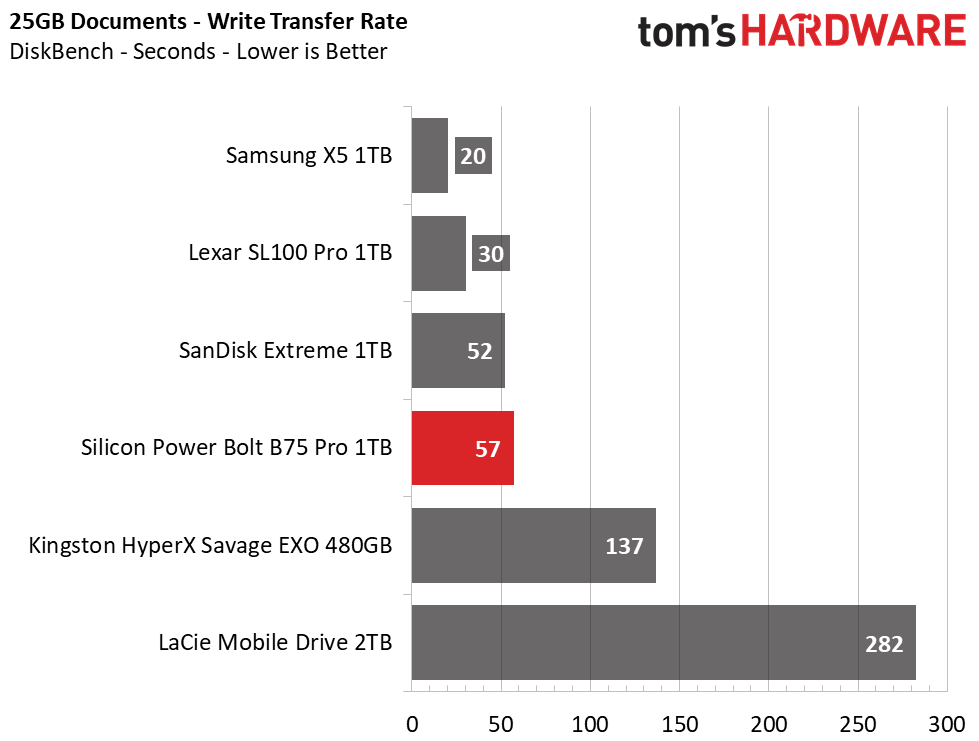
Unlike Kingston’s HyperX Savage EXO, the Bolt B75 Pro delivers some respectable results for a flash-based external. Write performance is just behind the SanDisk Extreme by a few seconds and leaps and bounds better than what the LaCie Mobile Drive can withstand. The Bolt was able to write at a rate of 449-487 MBps. During file reads, it comes in third overall, edging out over the other SATA based externals.
Trace Testing – PCMark 8 Storage Test 2.0
PCMark 8 is a trace-based benchmark that uses Microsoft Office, Adobe Creative Suite, World of Warcraft, and Battlefield 3 to measure the performance of storage devices in real-world scenarios.
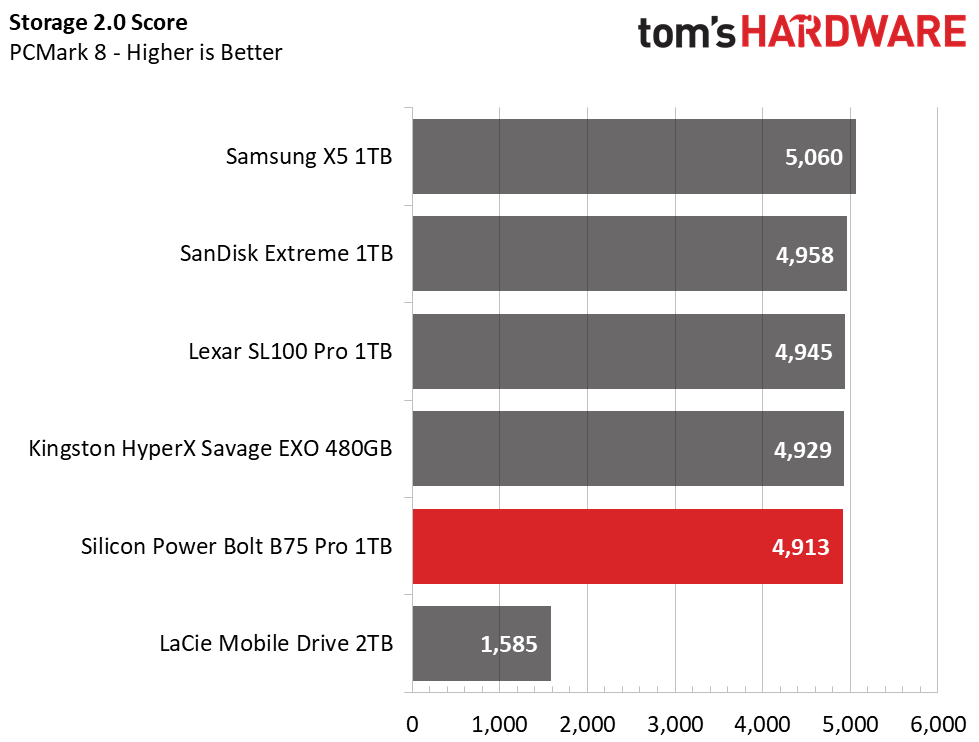
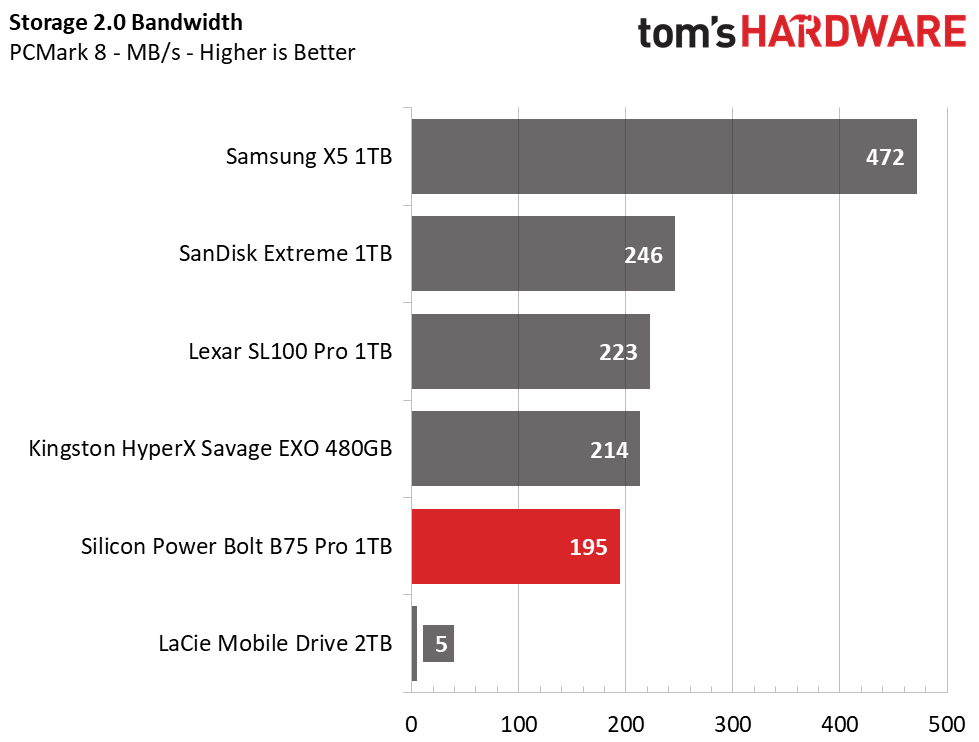
In PCMark 8, Silicon Power’s Bolt B75 Pro wasn’t able to surpass the HyperX Savage EXO. But still, it proved itself to be quite fast for application use. With a total score of 4,913 points and an average bandwidth of 195 MBps, it ranks fifth overall and is significantly better than what any HDD could deliver.
Synthetics - ATTO
ATTO is a simple and free application that SSD vendors commonly use to assign sequential performance specifications to their products. It also gives us insight into how the device handles different file sizes.
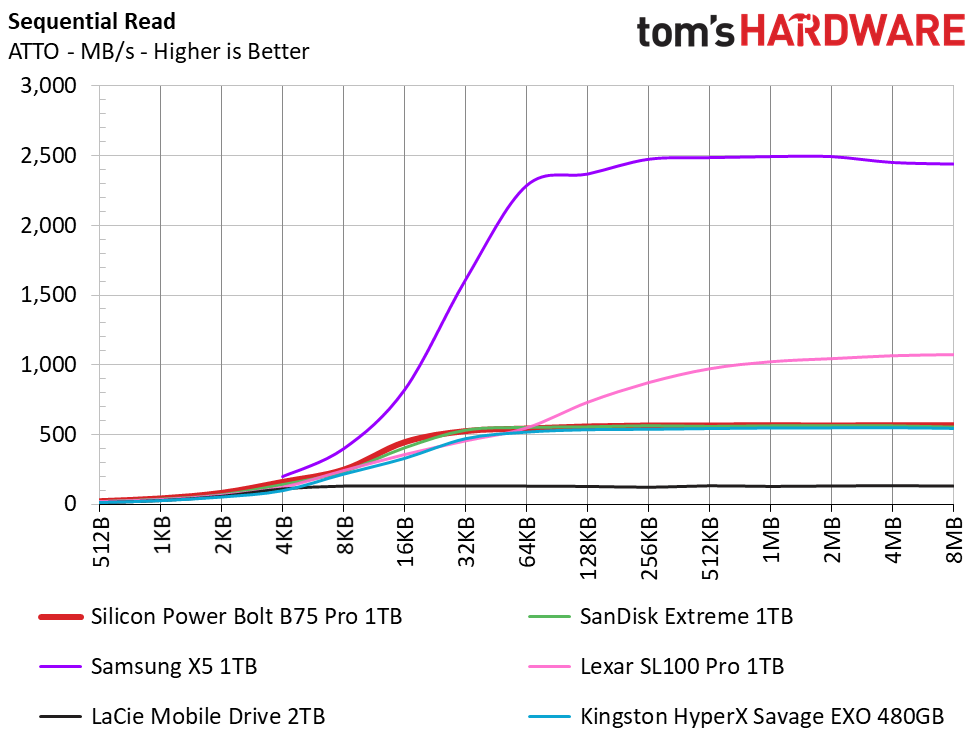
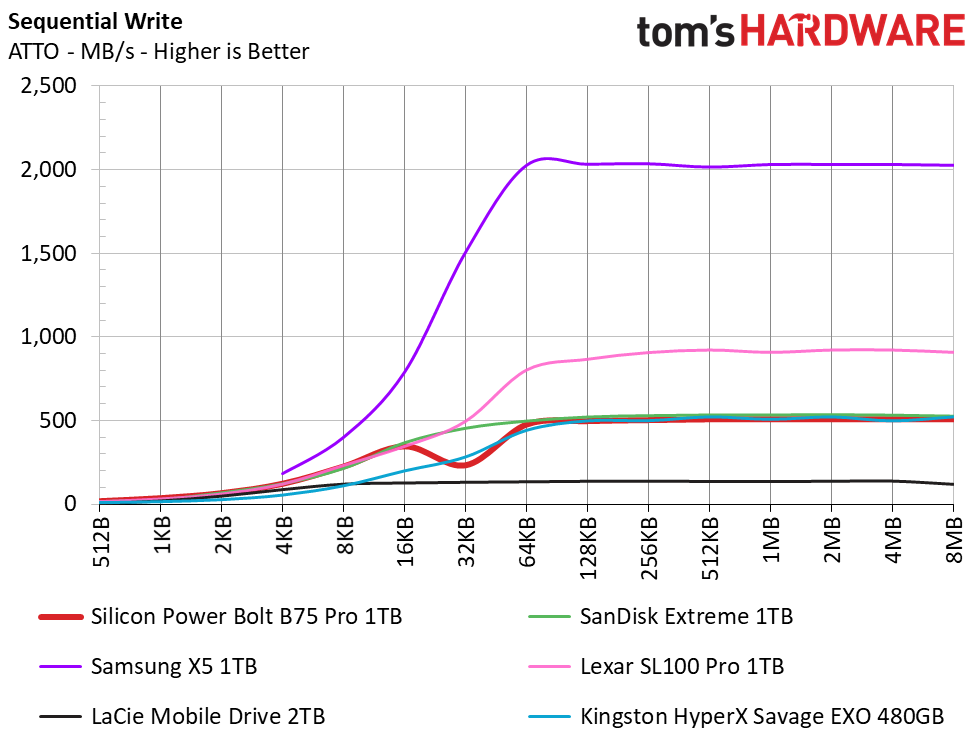
The Bolt B75 Pro hit its rated speeds and then some here. In reads, it hit a max of 567 MBps and while writing, it hit 507 MBps. This is similar to the SanDisk Extreme and HyperX Savage EXO.
Get Tom's Hardware's best news and in-depth reviews, straight to your inbox.
Synthetics - iometer
iometer is an advanced and highly configurable storage benchmarking tool that vendors often use to measure the performance of their devices.
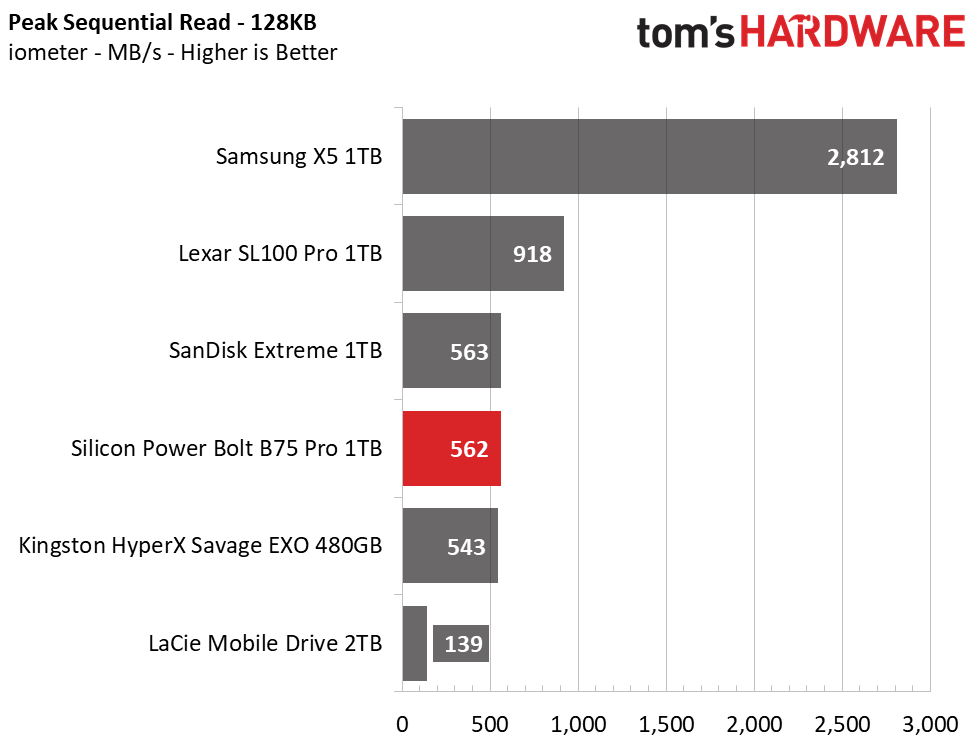
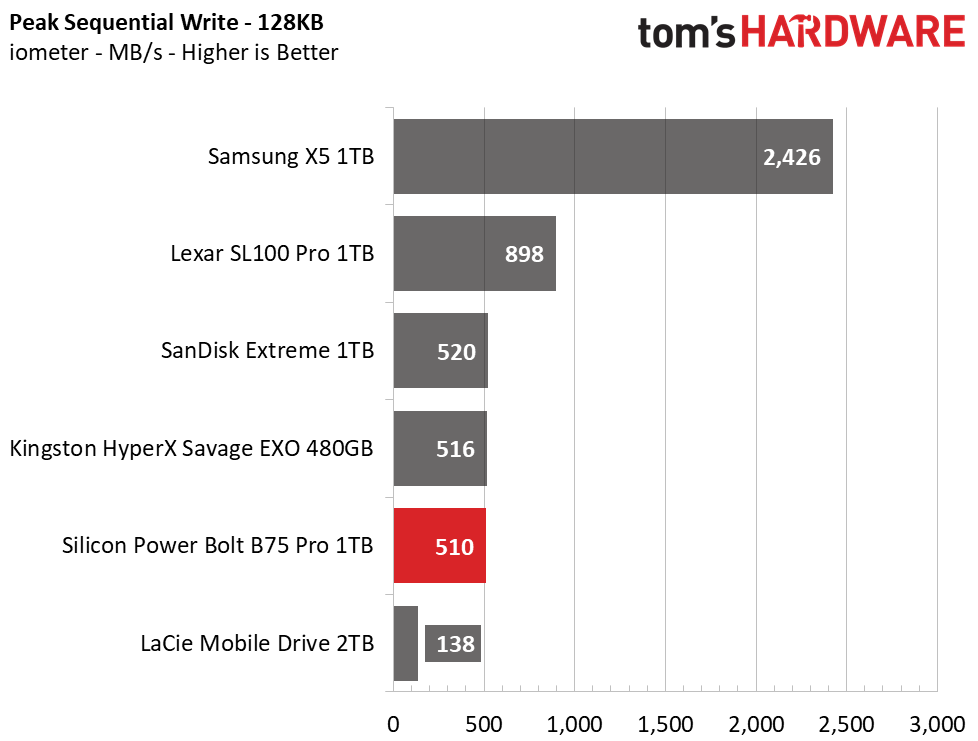
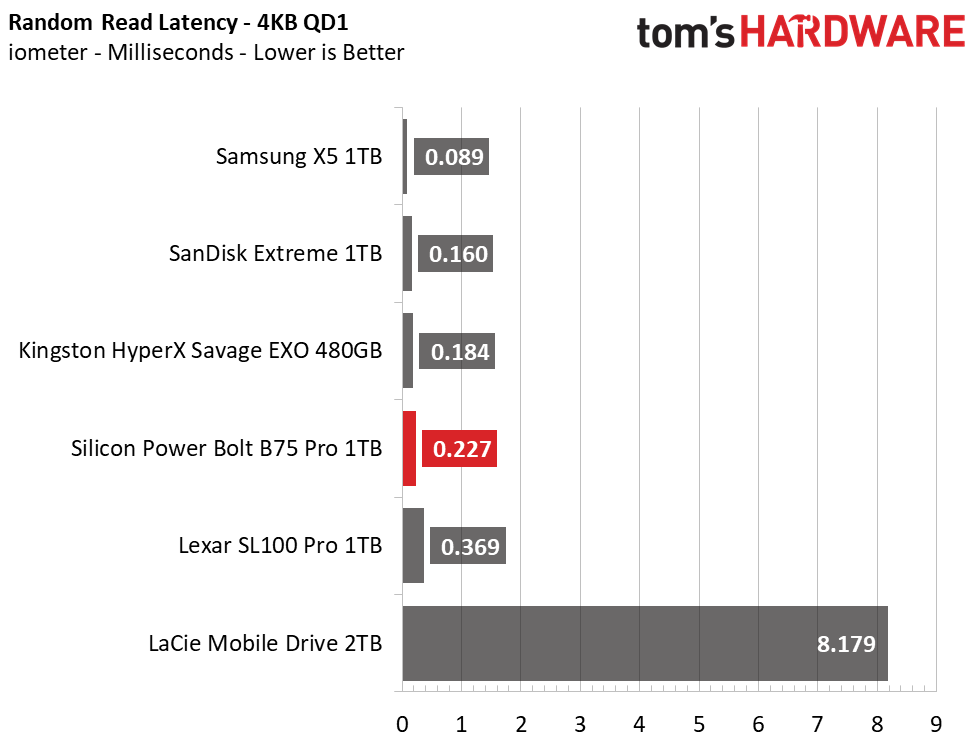
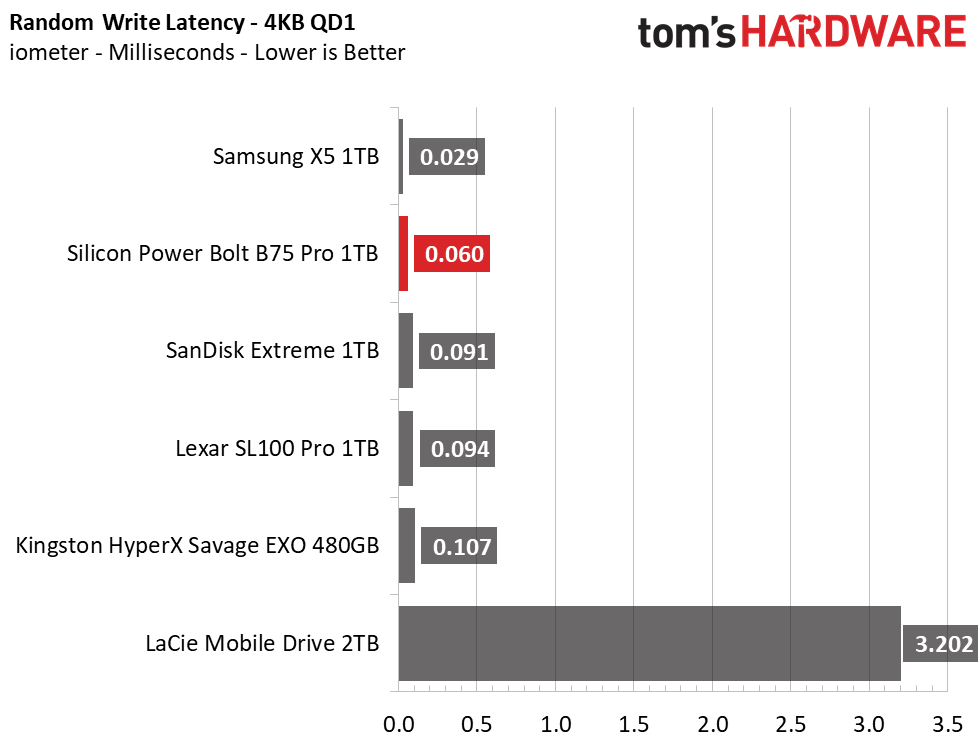
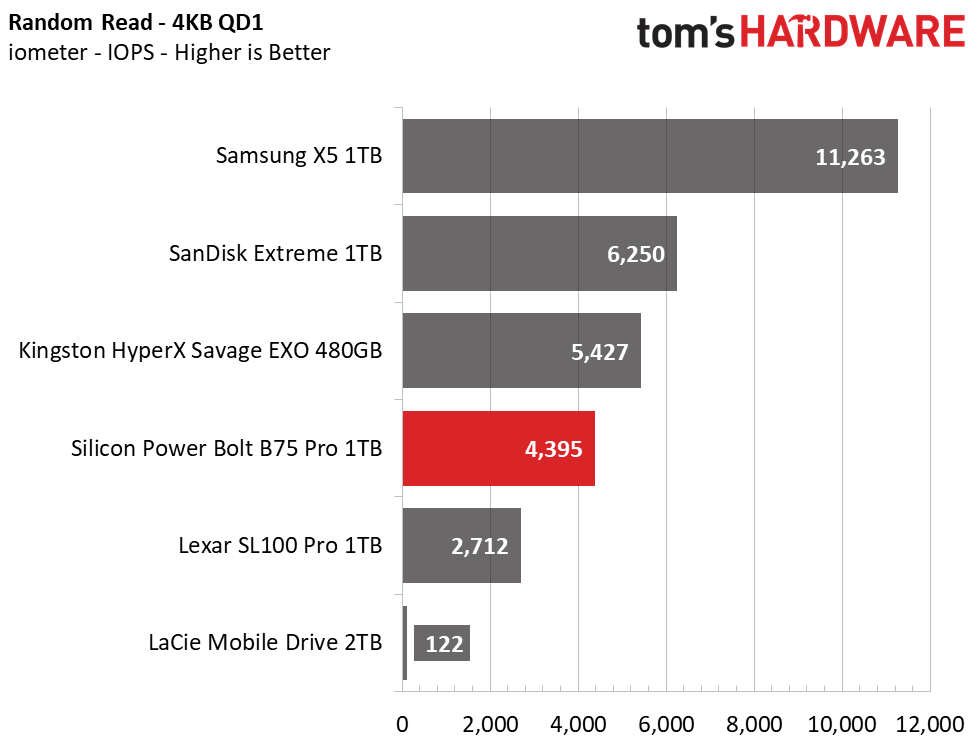
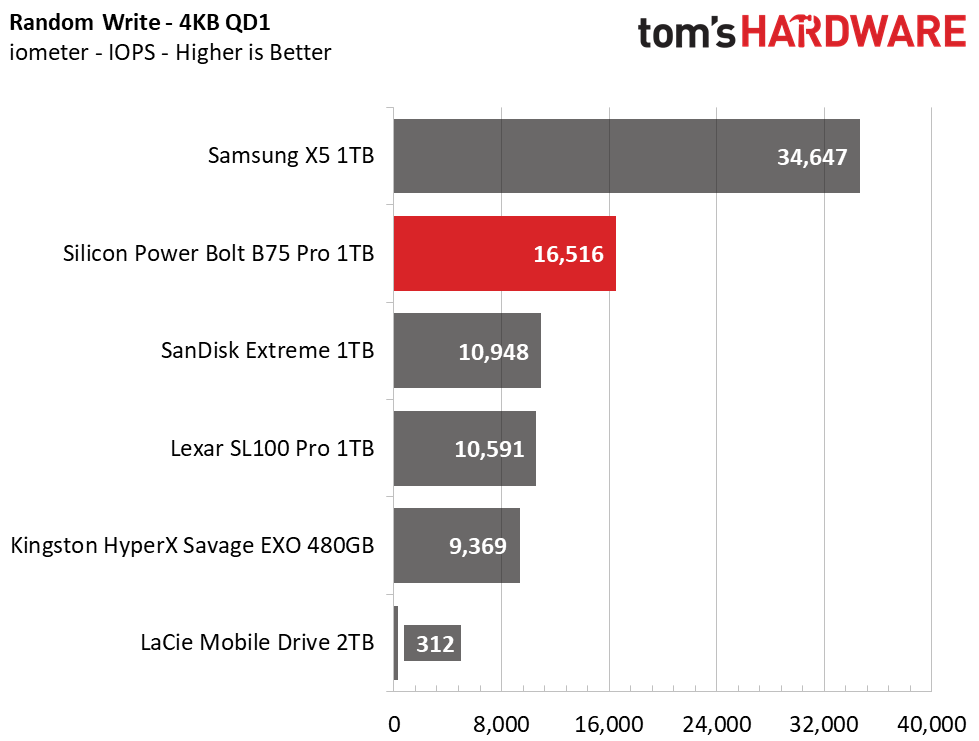
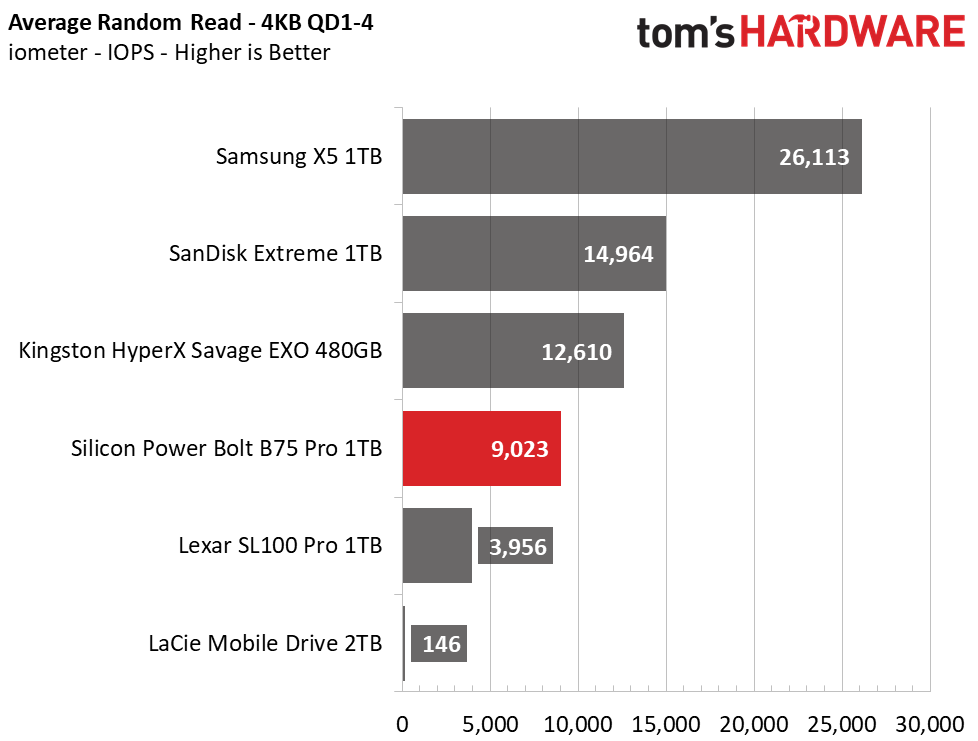
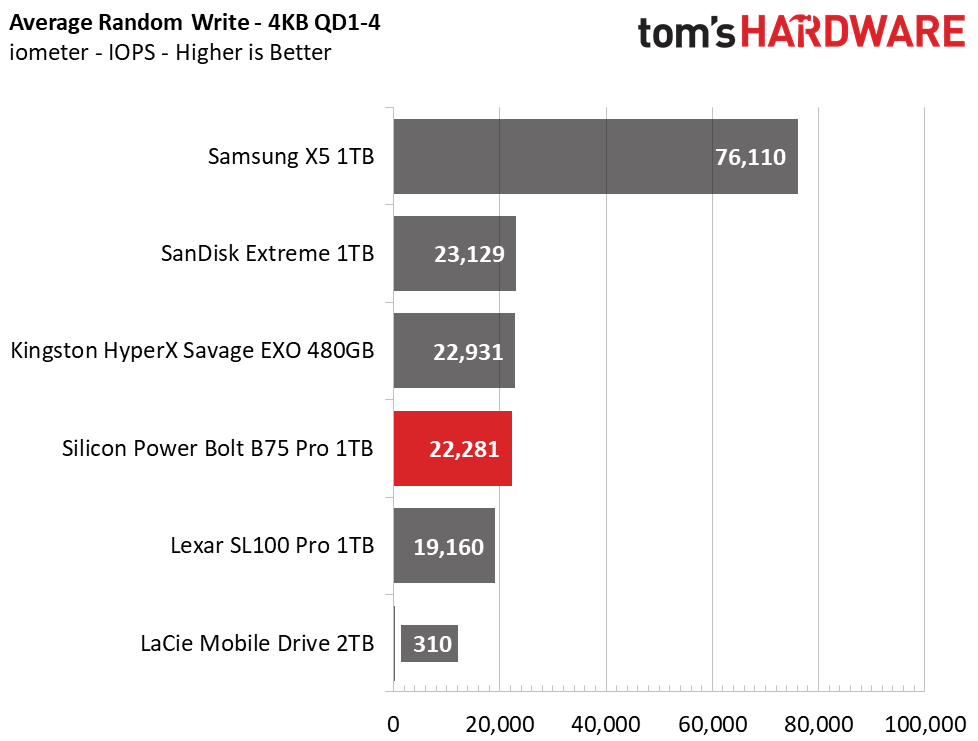
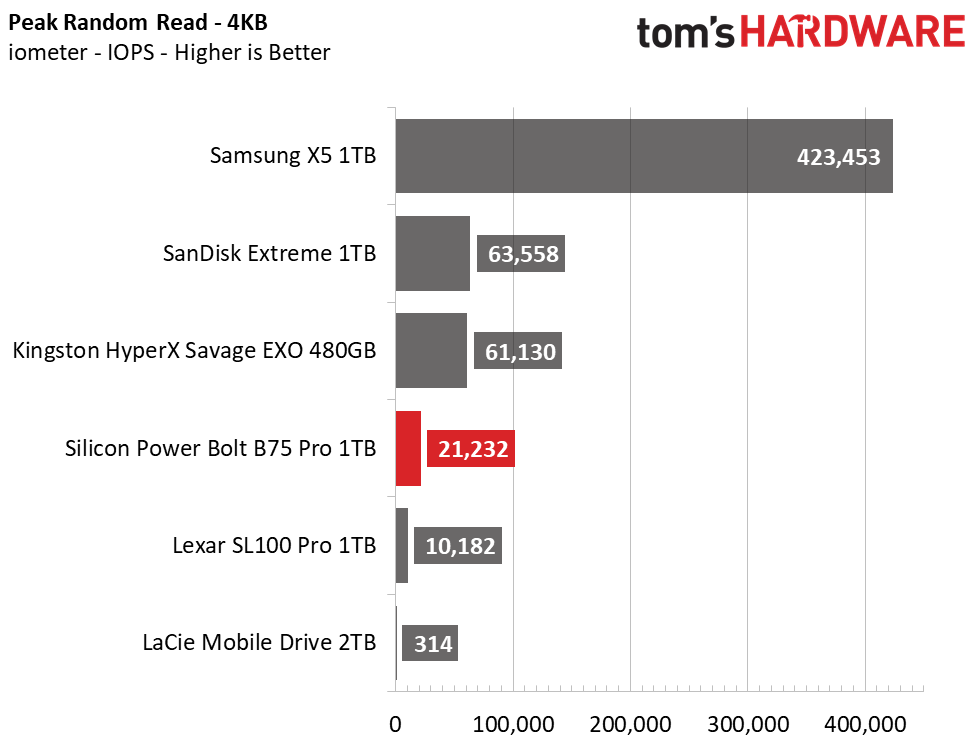
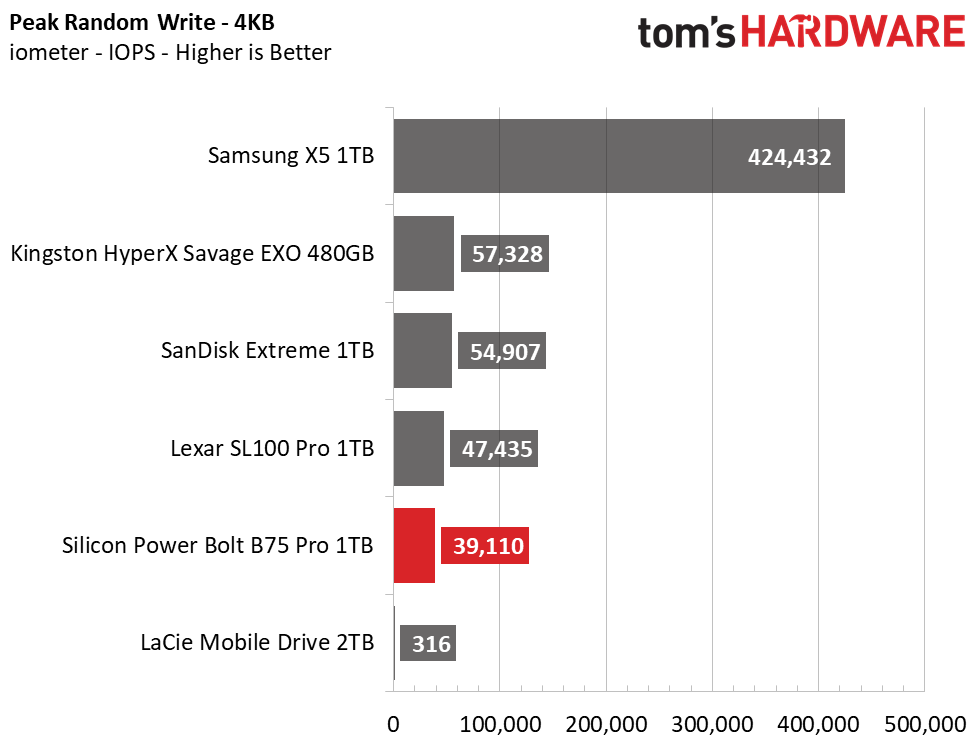
Results from sequential performance testing in iometer match that of ATTO. Speeds of 560/510 MBps read/write were achieved. With a fourth-place ranking, random performance is pretty decent too. At a queue depth of one, Silicon Power’s Bolt B75 Pro is capable of up to 4,300 IOPS read performance and has the second-highest write performance, 16,500 IOPS. Also, peak random figures come in at 22,000 / 39,000 IOPS read/write.
Write Saturation and Temperature
Write speed and temperature are two important and inter-related metrics for external devices. We threw in this one last test to measure the performance of the drive over a 15-minute window, writing to the full span of the drive. When possible, we also log the temperature of the drive via the S.M.A.R.T. data to see when (or if) thermal throttling kicks in and how it impacts performance. This test also reveals if the drive has a pseudo-SLC cache, which is a small portion of faster-programmed flash that absorbs incoming write workloads. Bear in mind that results will vary based on the workload and ambient air temperature.
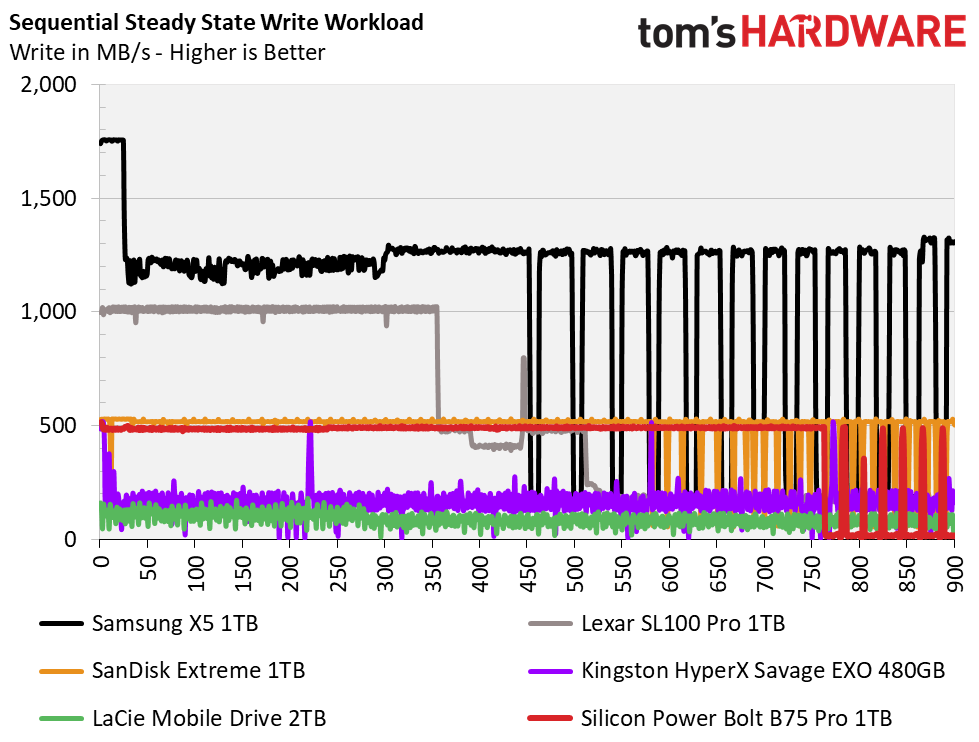
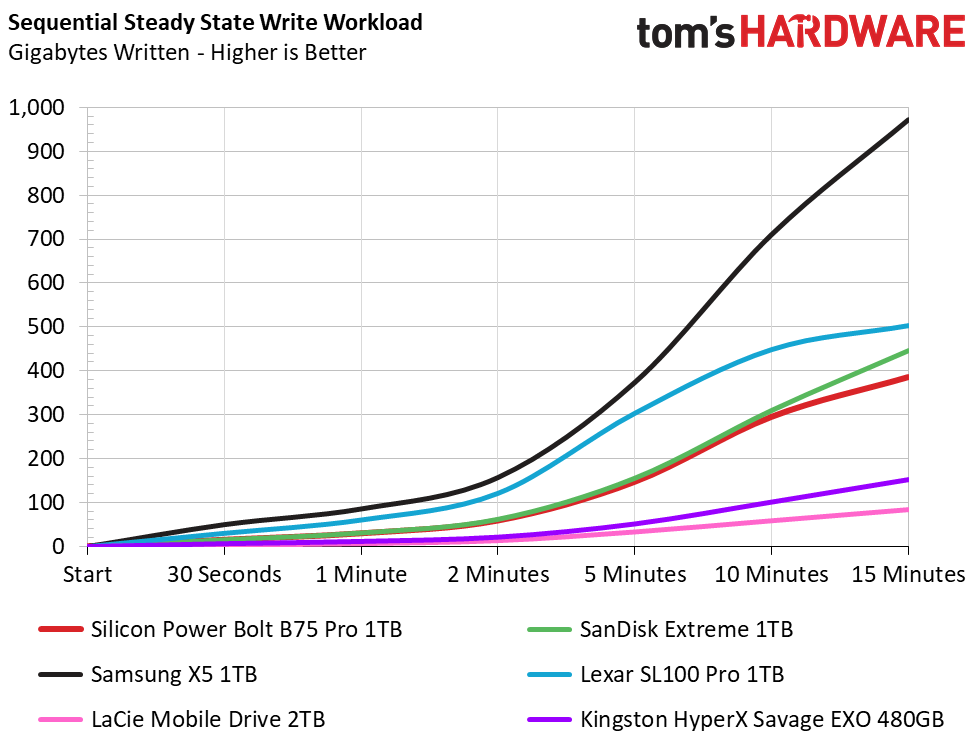
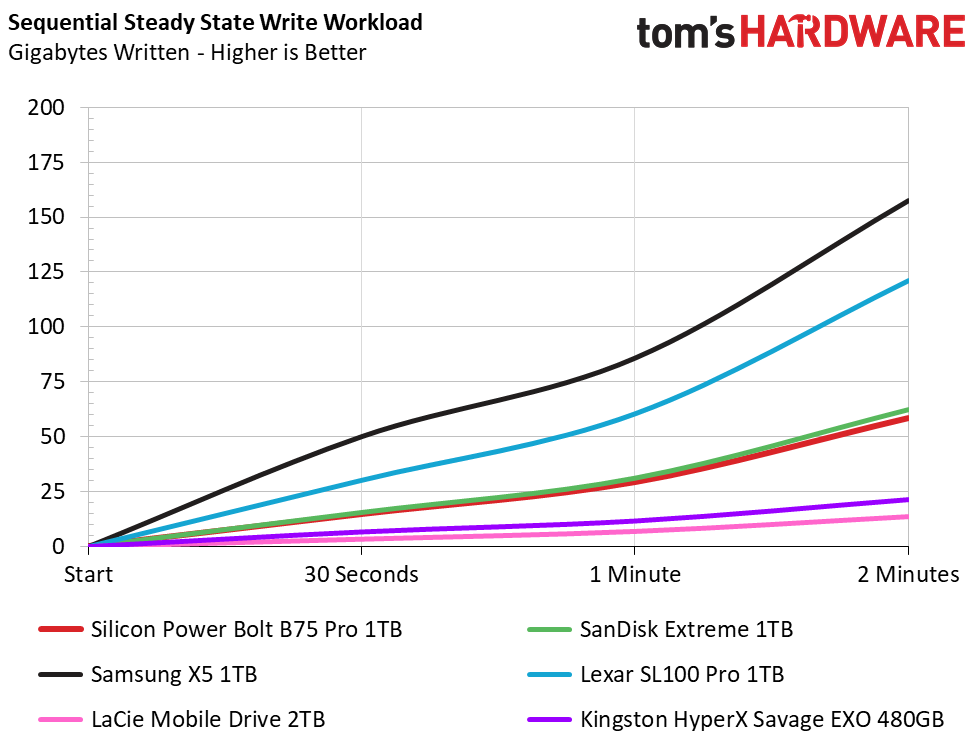
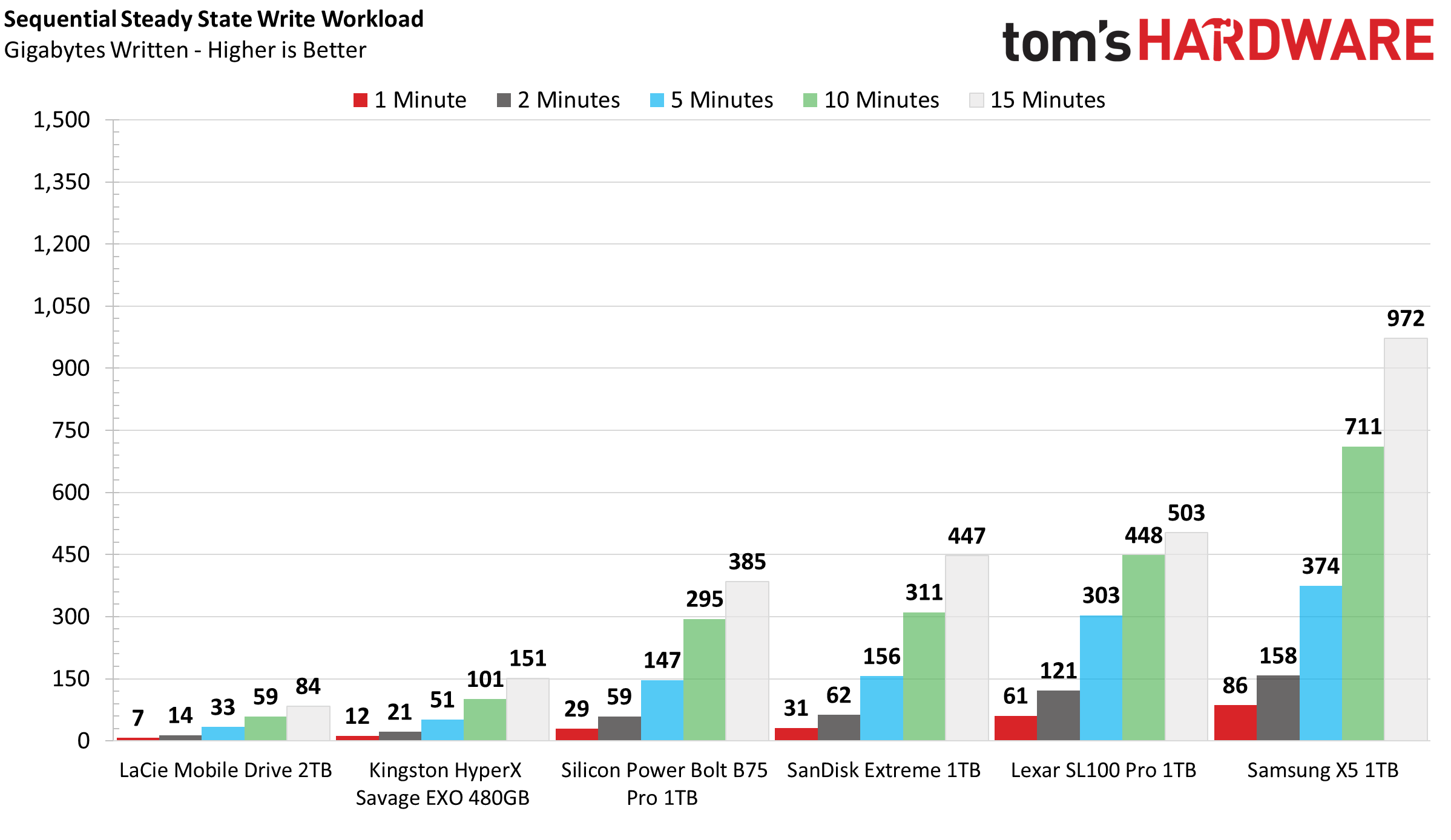
For the first twelve minutes and forty-five seconds of writing, the Bolt B75 Pro wrote at a rate of 485 MBps for a total of 375GB. Beyond that, however, write speed decreased significantly. Once the dynamic SLC cache is full, write speed averaged 70 MBps, with lows as low as 5-6 MBps.
MORE: Best SSDs
MORE: How We Test HDDs And SSDs
MORE: All SSD Content

Sean is a Contributing Editor at Tom’s Hardware US, covering storage hardware.